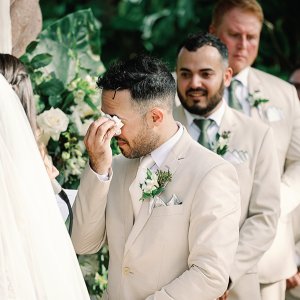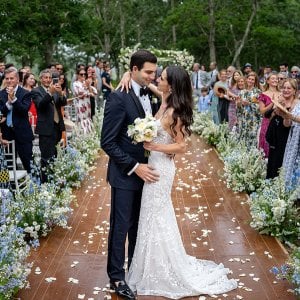Answers to who walks when, who stands where, and other ways to make sure your ceremony is perfect.
By: Diane FordenQ: I am a Baptist and my future husband is Roman Catholic. We have no problem with our different faiths and would like to find a way to incorporate both religious traditions in our ceremony. Our families want us to be married in our own churches. Any advice?
A: There's no denying it: When two people of different faiths marry, challenges, obstacles, and hurt feelings almost always arise. The most important thing you and your groom can do is remain focused and flexible. Visit each others churches and become acquainted with the services and rituals of the other religion. Discuss what type of ceremony you want to have and where best to have it. You may decide on an interfaith, or ecumenical, service which includes different aspects of both religions. This type of service can be equally divided between the two faiths and often takes place on neutral ground (thus eliminating your families demands that the ceremony be at one particular church). Or, one of your officiants may offer to act as the host at his church, inviting the other clergy members to participate in the ceremony. In either case, it is important to communicate your preferences to your families and emphasize that both religions will be equally respected and represented in a spirit of acceptance and cooperation.
However, your biggest challenge may be in finding the officiants who will participate in an ecumenical service. Some priests, ministers and rabbis simply refuse to officiate at marriages performed outside of their own churches or synagogues. But with interfaith marriages becoming more and more common there are many clergy who will administer the marriage vows in an ecumenical ceremony.
Start by speaking with the priest and minister at your own parishes to find out if they are available and check local magazines and newspapers for advertisements of ecumenical clergy. You might also call theological seminaries, where clergy receive their training, for suggestions.
After you have found your officiants, be sure to meet with both of them at the same time to carefully plan the ceremony. Determine all of the requirements that must be included from both religions. And, once you have established your ceremony procedures, you might want to explain the rituals of each religion in your wedding program so that your guests understand their meaning and feel more included.








